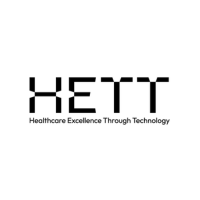At HETT Show, keynote speaker Ming Tang, Interim Chief Digital and Information Officer and Chief Data and Analytics Officer at NHS England, delivered a rallying message for collaboration, courage, and pace in realising the NHS’ digital ambitions. She described the current moment as a “once in a lifetime opportunity for the NHS to get it right.”
Moving Beyond Digitisation to True Transformation
Tang warned that the NHS must resist the temptation to simply digitise existing systems. Using an analogy, she compared the shift the NHS must make to the one from video rentals to streaming.
“It’s not about digitising what we’ve already got, because if we do that, we’ve totally failed.”
For leaders driving digital programmes, her message was clear: transformation is not about technology for its own sake. It’s about reimagining pathways, designing around the person, and creating services that are connected, intuitive, and proactive.
Breaking Down Silos to Deliver as One System
Tang stressed that delivering the 10-Year Health Plan will only be possible through genuine collaboration across organisations and disciplines.
“No one organisation, no one bit can do it.”
She urged teams to put self-interest aside, break down organisational boundaries, and channel the collective energy already present across the system. This means finding ways to share data, align standards, and act as one, even when governance, funding, and infrastructure differ locally.
The Three Pillars of Digital Change
Tang outlined the three national initiatives driving digital transformation across the NHS:
- The NHS App – the “digital front door”
More than a convenience tool, the app is a gateway to redesign the way patients engage with the NHS. Tang described it as a “Trojan door” — an entry point to digitise care pathways and link systems across the organisation.
For local teams, this means ensuring digital services integrate with the app and feed into a unified patient journey. - The Single Patient Record (SPR)
A cornerstone of the digital vision, the SPR will bring together patient information from across care settings. Tang explained it won’t be a single monolithic platform but “a series of different things that plug and play”, flexible, interoperable and open. The first use cases, such as maternity care, will test how the SPR can support joined-up, safer, and more efficient experiences. - The Federated Data Platform (FDP)
Underpinning this ecosystem, the FDP will help connect systems and improve the “logistics of care”. Tang pointed out that delays, such as long discharge waits, often stem from disconnected systems. The FDP’s goal is to support better coordination, reduce duplication, and enable multidisciplinary teams to work from the same live data.
Harnessing Data as a National Asset
Tang spoke passionately about using the NHS’ rich data to drive research and innovation.
“We want the data, the rich data that we have, to be made available for research… and build in the feedback loop for that learning back into clinical service.”
She described an ecosystem where insights from research and life sciences feed directly back into patient care, shortening the path from discovery to delivery. As genomics advances, she said, the NHS will be able to screen earlier and offer more personalised treatments, setting a global benchmark for data-driven healthcare.
Building an Open and Interoperable Ecosystem
For transformation to succeed, Tang said, the NHS must move away from bespoke standards and embrace internationally recognised ones to ensure interoperability across technologies. She called for an environment where innovators, especially clinicians creating digital tools, can contribute easily.
“The pick and mix story for the NHS is how do we allow the technology stack to be much more plug and play so that different players can come and work with us.”
Her message: open systems, shared standards, and collaborative design are what will make local innovation scale nationally.
Confronting the Human Challenge
Tang addressed what she sees as the biggest obstacle to digital adoption.
“The biggest challenge to adoption of technology in the NHS I’ve seen over my 15 years is egos.”
She urged leaders to let go of attachment to legacy systems and ideas, to focus instead on shared goals and scalable solutions. Her honesty resonated, a reminder that cultural change is as important as any technical delivery.
A Call to Arms
As the session closed, Tang acknowledged the pressure NHS teams face amid resource constraints and restructuring. Yet her tone remained resolute and optimistic.
“This is why we need to collaborate. This is why we need to come together in adversity… it’s not about the tech, it’s about hearts and minds and change.”
She challenged the audience to focus on tangible progress in the near term:
“Ten years is a long time. Let’s focus on the next two to three years and deliver some stuff so that the next three to five years is a success.”
Her words were a reminder that the technology is ready, the vision is shared, and the opportunity is now.
Join us at our upcoming event, HETT Leaders Summit on 12th February at Royal Armouries, Leeds. Register for free below.
%20(1).png?width=500&height=58&name=HETT%20insights%20logo%20RGB-04%20(1)%20(1).png)



